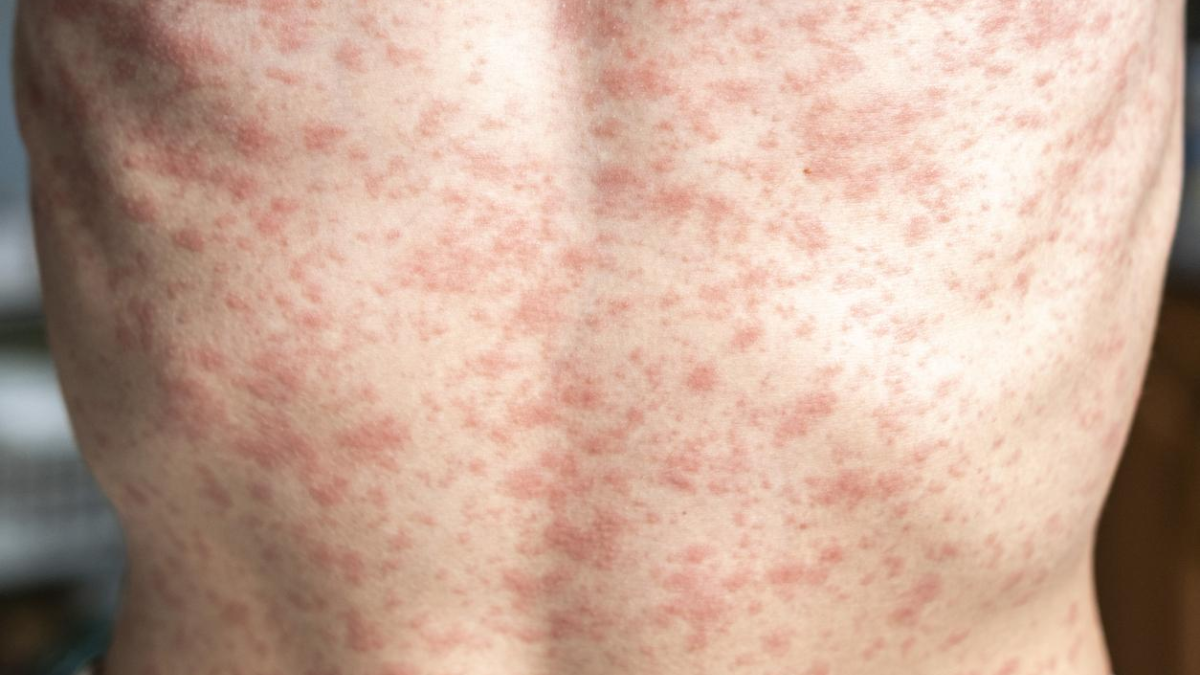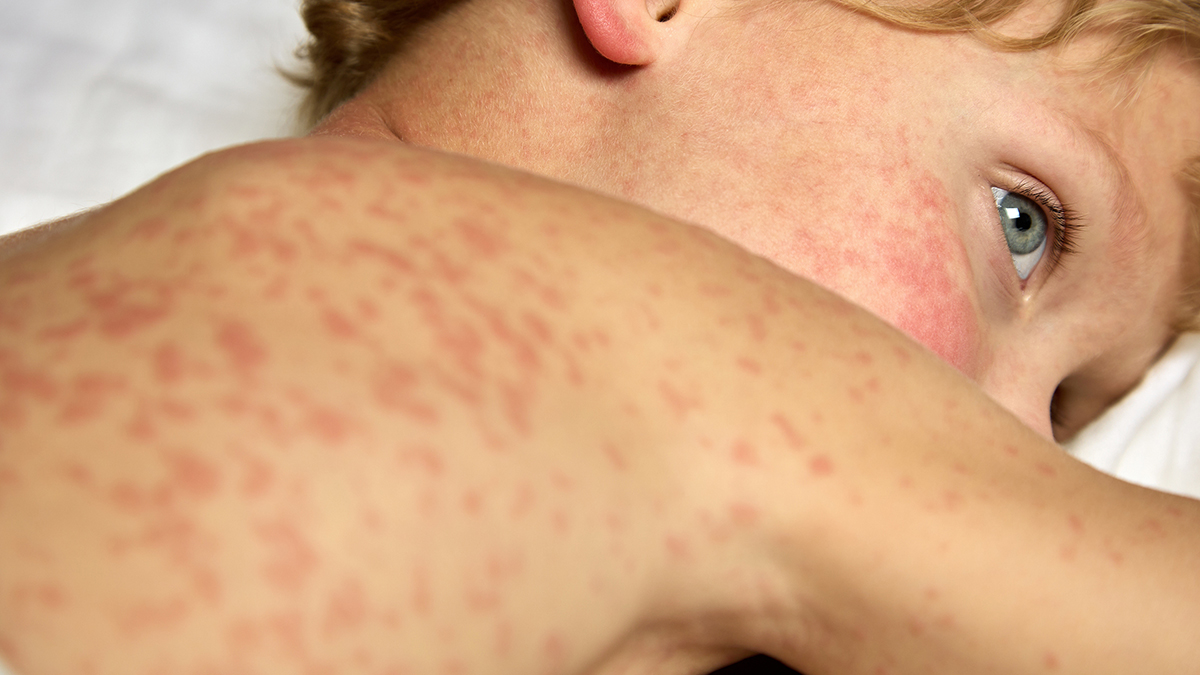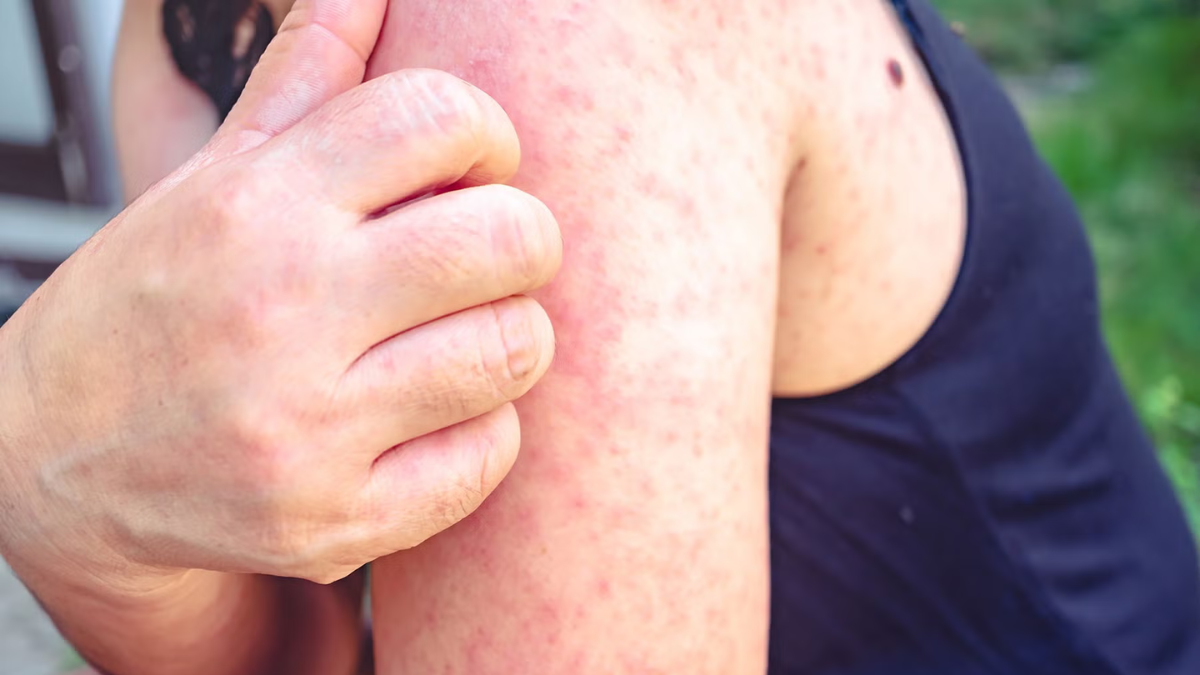-1744292432829.png)
The Indiana Department of Health (IDOH) has confirmed five new measles cases in the state, bringing the total to six for 2025. The first case was reported earlier this week in an unvaccinated minor from Allen County. Within just 48 hours, the state identified five additional infections—three among other unvaccinated minors and two adults whose vaccination status remains unknown.
Table of Content:-
While all six cases are epidemiologically linked, there are currently no connections to ongoing outbreaks in other states, according to the IDOH. Health officials are actively tracing contacts to contain the spread and have assured the public that the overall risk remains low. However, experts stress that even one case can signal an outbreak due to the virus's extreme contagiousness.

What Makes Measles So Dangerous?
Measles isn’t just another childhood illness—it’s one of the most contagious viruses known to science. According to Thomas S Duszynski, a clinical assistant professor at the Richard M. Fairbanks School of Public Health at Indiana University Indianapolis, a single measles case can infect an average of 12 to 18 people.
While the IDOH says the current risk is contained, Duszynski urges caution. “It’s low, but it’s not zero,” he warned. “Symptoms can take up to three weeks to appear, which means someone may spread the virus before even knowing they’re sick.”
The virus typically manifests as a high fever, persistent cough, white spots inside the mouth (Koplik spots), and a spreading rash that usually starts at the hairline and moves down the body. If symptoms appear, individuals are encouraged to isolate immediately and call a healthcare provider before visiting a clinic or hospital.
Who Is Most at Risk?
Young children, pregnant women, the elderly, and individuals with compromised immune systems are especially vulnerable to severe complications from measles. These can include pneumonia, encephalitis (brain swelling), and in extreme cases, death.

Recent data from the ongoing U.S. outbreak show that more than 70 of the 600+ reported measles cases required hospitalisation—many of them children under five. Texas recently reported two fatalities in unvaccinated school-aged children, underscoring the virus's deadly potential when left unchecked.
Vaccination: The Best Defense
There is no antiviral treatment for measles. Instead, medical care focuses on managing symptoms and preventing complications. Fortunately, prevention is straightforward—the measles, mumps, and rubella (MMR) vaccine is highly effective. One dose offers 93% protection, while two doses increase immunity to 97%, according to the IDOH.
Also Read: Deadly Measles Outbreak Sweeps Across US: Texas At Epicentre With 500+ Cases And 2 Deaths
Routine immunisation begins at 12-15 months of age, with a second dose administered between ages 4-6. In high-risk situations or during outbreaks, children as young as six months may be eligible for early vaccination. Adults unsure of their immunisation status—particularly those born between 1957 and 1968—are encouraged to consult their healthcare providers.
A small subset of vaccines from that era used a less effective "killed virus," so a booster may be necessary for adequate protection. People born before 1957 are generally considered immune due to likely exposure during widespread outbreaks before the vaccine's introduction.

Community Protection Through Herd Immunity
Experts estimate that approximately 95% of the population must be vaccinated to maintain herd immunity, a threshold that protects individuals who cannot receive the vaccine for medical reasons. This collective immunity is essential for safeguarding infants, pregnant women, and those with severe allergies to vaccine components.
As the IDOH continues to monitor and investigate the latest measles cases, health officials strongly advise all Indiana residents to review their vaccination records and ensure that they and their families are up to date. The takeaway? Don’t wait. With measles, early action and widespread immunisation remain the most powerful tools in preventing a wider outbreak.
Also watch this video
How we keep this article up to date:
We work with experts and keep a close eye on the latest in health and wellness. Whenever there is a new research or helpful information, we update our articles with accurate and useful advice.
Current Version